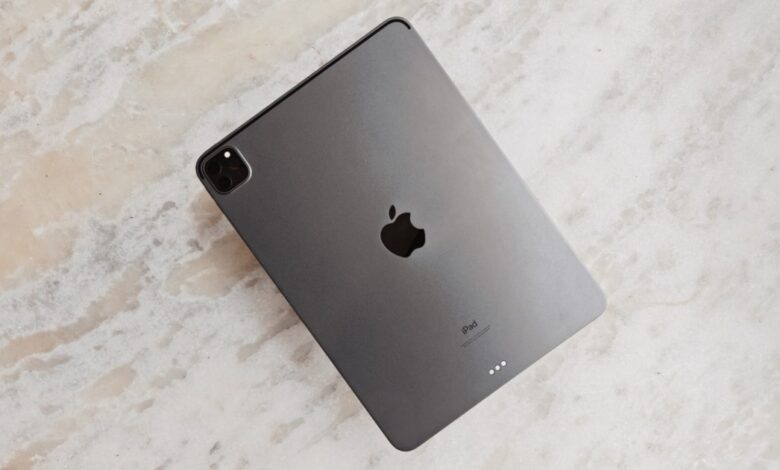Why My 2021 iPad Still Amazes Me Despite Upgrading to an M4 iPad Pro

It may seem surprising,but my main computer for the last few years has been an iPad Pro. My interest in using tablets this way began with the release of the M1 model, and I have continued to use them up to the latest M4 version.
Recently, I revisited my M1 iPad Pro to see how it performs with modern apps that push graphics and AI on mobile devices. The key question is weather this four-year-old device can still be a dependable tool in 2025.
The answer is a clear yes. Despite being released in 2021, the M1 iPad Pro still performs impressively well today. It handles Adobe software effortlessly, runs high-performance games smoothly, and supports productivity on an external monitor without issues. However, there is one crucial point to consider.
Battery Life: A Notable Concern
the only real issue I've encountered is related to battery life. After four years of use,my M1 iPad Pro's battery has aged considerably. One reason I chose an iPad as my primary computer was its powerful chip—who wouldn’t want desktop-level performance in a tablet?
The M1 chip not only offers speed but also efficiency. The 120Hz ProMotion display helps conserve power when full brightness isn’t necessary. Initially,I could complete a full day’s work on one charge; now I ofen need low-power mode and reduced brightness settings to achieve similar results.
According to analytics logs,my battery health is currently at 86%,which isn't to bad considering Apple suggests around 80% after about 1,000 charging cycles. When battery health dips below that mark, you’ll notice shorter usage times and also potential slowdowns during certain tasks.
I didn’t experience critically important slowdowns during regular use unless engaged in demanding activities like video editing or high-end gaming at maximum settings. I'm satisfied with how long the aging tablet lasts per charge; it easily supports long work sessions without running out of power.
A Strong Performer for Years Ahead
I switched to the M4 iPad Pro about a year ago and became quite fond of it due to its sleek design and stunning 13-inch OLED display—it's truly impressive compared to other screens I've used.
Though,returning to the M1 model with its smaller LCD screen did not hinder my workflow much at all. While I missed some features like deeper blacks and higher brightness from the newer model's display, the LCD on this older version remains excellent for tasks like image editing or gaming without noticeable drawbacks.
I recently added a matte screen protector that reduces glare while providing better grip for stylus control—a change I'm really enjoying!
The most surprising aspect was how well this three-generation-old tablet performed overall; there were no noticeable delays while switching between apps or navigating through interfaces smoothly.
While exporting videos might take slightly longer than on newer models like the M4 version (a few extra minutes), applications such as LumaFusion worked perfectly fine alongside color grading tasks in DaVinci Resolve without any hiccups.
I primarily edit 4K videos using LumaFusion on my iPad; playback speeds are just about 28-35% slower than what I'd get from my MacBook Pro—and only around 20-23% slower than MacBook Air due mainly because it tends to overheat due lack of cooling fans!
This setup works great even when using Stage Manager features! My sister uses her device heavily for fashion design work too—her sketching apps run smoothly without crashes or overheating issues either!
A Unique software Experience
the software experience has always been somewhat lacking since Apple introduced their first-generation processors into these devices—a situation that hasn’t changed much since then! This can be both good news (for those who love simplicity) yet frustrating if you prefer more customary computing environments such as macOS/Windows systems instead!
If your goal aligns perfectly within what’s offered here—you won’t find anything better elsewhere! Apple understands this dynamic very well—which explains why they haven’t marketed these tablets strictly as replacements for laptops/desktops either!
You can accomplish everything possible via current-gen models—including legacy applications plus new generative AI tools available today—all while remaining optimistic regarding future updates coming down line soon enough too!
A feature worth mentioning would definitely include Stage Manager functionality—it allows me connect larger displays seamlessly whenever needed! Recently experimenting AR smart glasses made things even more enjoyable by providing immersive experiences beyond expectations altogether!!
Although I'm not particularly fond of Apple's AI offerings—the recent introduction brought minor improvements across native applications (like Notes) which have proven useful thus far!! Given trends surrounding app development aimed specifically towards enhancing user experiences—I remain hopeful additional pro-grade options will arrive shortly thereafter!!
To sum up—the original generation remains testament towards Apple's dominance within tablet market space today!!! While I'd hesitate recommending specific models mentioned earlier—I’d suggest considering upgraded versions if budget permits accordingly!!! Refurbished units featuring second-gen chips offer fantastic value along side newly released Airs equipped third-gen silicon too!!!
No matter what choice made—you’re guaranteed exceptional quality paired alongside unmatched longevity ahead!!





